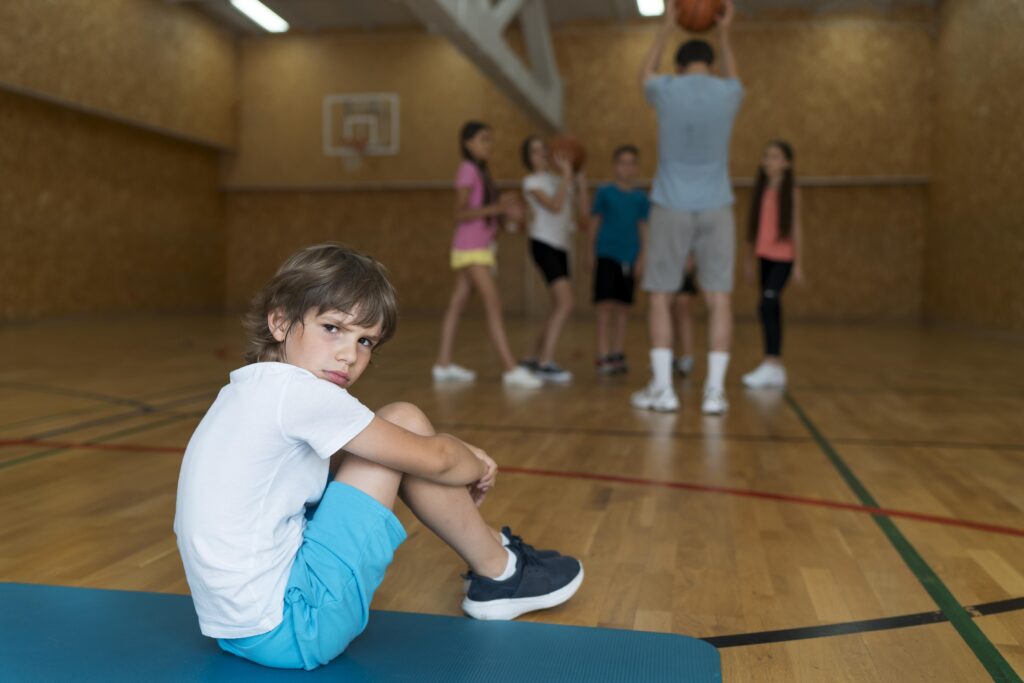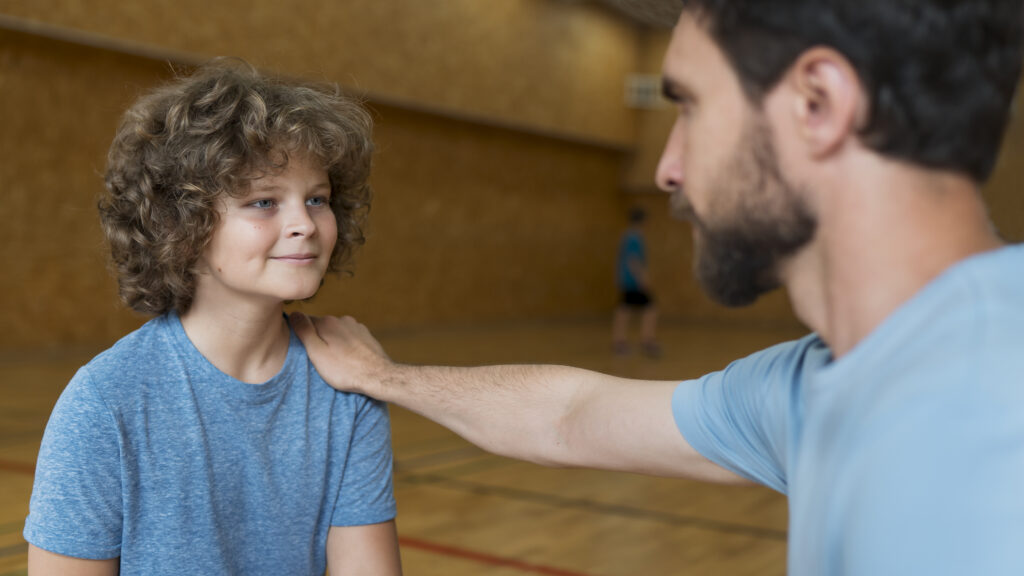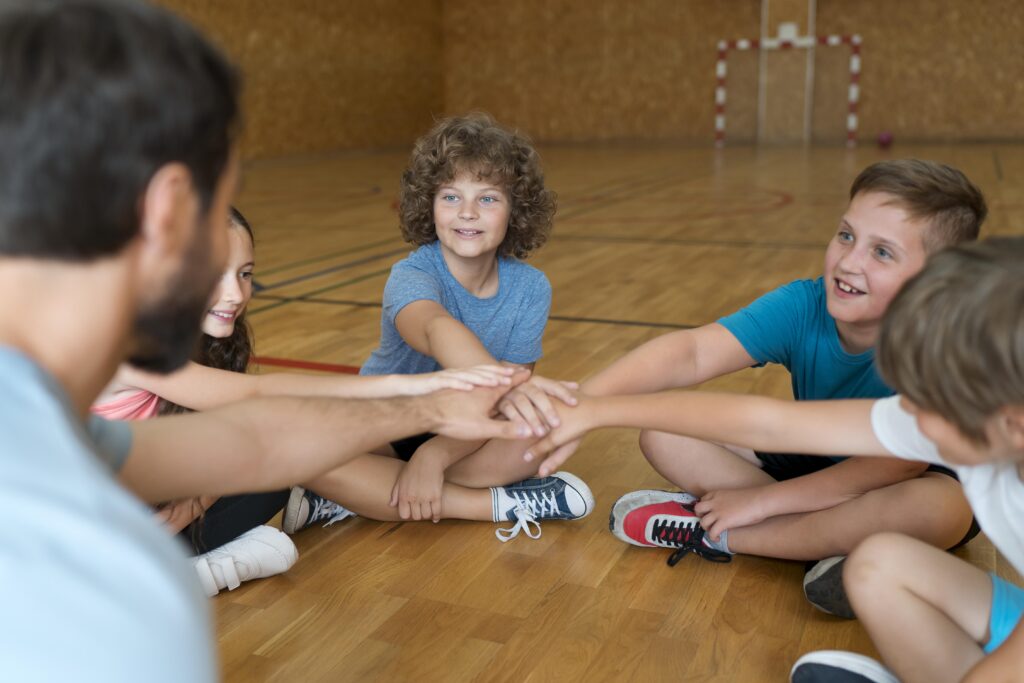Kickoff: The Crucial Role of Ensuring Safety in Youth Sports
Sport is a great source of pleasure, physical health, group spirit, and precious life experience for kids. The thrill of goal scoring, friendly relations between team members, and the discipline of regular exercise contribute significantly to a child’s development. However, despite the many benefits of sports, ensuring the safety of young athletes has become a top priority. Recent events have highlighted the various risks that children may encounter in sports leagues, from physical injuries to more serious abuse, underlining the need for increased vigilance. The involvement of legal professionals specializing in sexual abuse cases in sports organizations has brought attention to the legal and emotional challenges that arise from such incidents. This ongoing effort emphasizes the critical importance of establishing a secure sporting environment, making it essential for parents to adopt a proactive approach to safeguarding their child’s well-being in this environment.
Getting to Know the League: Research and Questions
Establishing your child’s safety in sports begins with conducting comprehensive research on the league’s reputation and operational standards. It is essential to understand the league’s approach to child protection, risk assessment, and handling of incidents. Parents must examine the league’s history for any concerning patterns or previous incidents, potentially seeking guidance from a California sexual abuse in sports attorney to gain a better understanding of legal matters or past challenges within the league. Asking pointed questions can highlight the league’s stance on safety:
- What are the league’s rules on background checks for coaches and volunteers?
- How does the league train its staff in child protection and injury prevention?
- What measures are the point of dealing with reports of abuse or misconduct?
- Are there protocols for emergency medical situations throughout games and exercises?
Through careful examination of the answers to these problems, parents can evaluate the league’s commitment to safeguarding athletes. This proactive strategy is not solely about instilling fear, but about ensuring peace of mind so that your child can fully enjoy the benefits of sports in a secure and supportive atmosphere.

The Role of Coaches: Guardians of Safety
Coaches play a key role in the sports environment, serving as protectors of safety and positive role models for young athletes. Their impact goes beyond teaching sports skills; they are instrumental in creating safe and supportive environments where children can grow. A coach’s commitment to safety is crucial in preventing injuries and safeguarding athletes from potential harm, including the threat of child sports sexual abuse. Parents can assess a coach’s dedication to safety by asking the following questions:
- How do you ensure all athletes understand and adhere to safety guidelines?
- Can you describe the training you’ve received in first aid and recognizing signs of abuse?
- How do you foster a culture of respect and safety among team members?
- What is your protocol for handling suspicions or reports of abuse?
Answers to these questions can provide insights into the teacher’s values, preparedness, and proactive measures in safeguarding athletes. A coach who’s well-versed in protection protocols, inclusive of collaboration with youth sports sexual abuse lawyers if required, is instrumental in growing stable surroundings for young sports activities fans.
Safety Gear and Training: The First Line of Defense
The use of suitable safety tools is non-negotiable in minimizing the risk of injuries in sports for kids. Helmets, pads, mouthguards, and the right footwear serve as the initial defense against injuries in every sport. Yet, the significance of safety gear goes beyond just providing it; it involves ensuring that each item fits correctly and is kept in good condition. In addition to physical safety, educating athletes on injury prevention is crucial. This instruction gives athletes the knowledge and skills to perform effectively, recognize their limits, and understand the importance of using proper techniques and body mechanics.
Parents need to inquire about the league’s and coaches’ regulations concerning protection equipment and their approach to injury prevention training. Questions would possibly consist of as following:
- How do you make sure all athletes have and use the proper protection equipment?
- What sort of damage prevention training do athletes receive?
- How are athletes taught to detect and speak about their accidents or discomfort?
A league that prioritizes protection tools and injury prevention training demonstrates a commitment to the proper well-being of its individuals. Such measures, alongside the guidance of a youth sports sexual abuse attorney, when needed, form a comprehensive approach to safeguarding young athletes both physically and emotionally.

Open Communication Lines: The Heart of Safety
Open communication generates the background of a child’s protection in sports leagues. Dad and mom, children, and coaches need to preserve communication that is both transparent and trusting. Encouraging children to share their experiences and concerns without worry of judgment or retribution is key. Here are some tips for fostering open communication lines:
Create a Safe Space: Regularly speak to your kids about their practice, games, and feelings in the direction of their group and educate them in a non-pressured manner.
Active Listening: Show genuine interest in what they’re talking about, whether it’s about a new skill they learned or an interaction that made them uncomfortable.
Empower Them: Teach kids it’s fine to say no and to report anything that makes them feel uncomfortable immediately to you or another trusted adult.
Positive Reinforcement: Praise your child for speaking about hard subjects, reinforcing that their voice matters.
These strategies inspire children to openly discuss their emotions and experiences, developing a protective layer against potential harm.
Recognizing and Responding to Red Flags
Being capable of recognizing signs of abuse is vital for parents to ensure their children’s protection in sports settings. Some red flags encompass sudden changes in behavior, unexplained injuries, or a sizeable worry of certain people or locations. Here are some ways how to navigate those concerns:
Stay Observant: Pay close interest in your baby’s physical and emotional wellness, noting any adjustments in behavior or mindset.
Knowledge is Power: Familiarize yourself with the general symptoms of abuse and neglect. Resources supplied through a sexual abuse law firm in California can provide precious insights.
Open Dialogue: If you notice signs and symptoms, lightly ask your baby about them without leading questions, ensuring they feel safe and supported.
Take Action: If you believe your baby is unsafe, report your concerns to the correct authorities without delay. Consulting with a sexual abuse regulation firm in California can offer guidance on a way to proceed legally and ensure your child’s protection.
Recognizing the symptoms of abuse and knowing the way to respond empowers parents to act swiftly and decisively, imparting an important shield of safety for their children in sports leagues.
The Power of Community: Parents Uniting Together
When parents unite, they turn out to be a formidable pressure in improving the safety and accountability of sports activities leagues. This collective effort can result in the implementation of stricter protection protocols, extra thorough background checks, and a way of life wherein each child’s welfare is the concern. Sharing experiences and worries among parents can reveal previously undetected patterns or issues, enabling timely intervention.
Collaboratively, parents can suggest adjustments, support each other in tough instances, and potentially navigate the complexities of submitting a civil claim for sexual abuse. This community acts as a safety net, making sure that no challenge is too small to be addressed and no voice is silenced. The energy of this unity not only safeguards kids but also fosters a sense of belonging and aid, critical for a healthy and positive sports experience.

Beyond the Field: The Bigger Picture of Safety
While physical protection in sports is paramount, the importance of emotional and psychological welfare can’t be overstated. Sports ought to be a supply of positive, personal increase, and resilience building, not worry or tension. Creating an emotionally secure environment involves recognizing the pressures and stresses young athletes can also face, along with the fear of failure, bullying, or undue strain from adults. Parents and teachers should work together to:
- Encourage open discussions about feelings, stresses, and pressures associated with sports.
- Promote stability, ensuring sports activities do now not overshadow other elements of a toddler’s life.
- Recognize the signs and symptoms of emotional and psychological distress.
- Provide assets for expert help whilst wanted, acknowledging that every now and then the information of a civil claim sexual abuse lawyer may be required to address certain troubles.
This holistic approach to safety underscores the significance of nurturing not only effective professional athletes but also full-fledged persons who find real joy in sports activities.
Wrap-Up: Ensuring a Positive and Safe Sports Experience
Keeping kids safe in sports activities leagues is a complex task that needs the active participation of parents, coaches, and the community. It involves conducting thorough research on leagues, promoting open communication, identifying signs of abuse, and advocating for emotional well-being. Each step contributes to creating a safer sports environment. By being proactive and working together, parents can greatly influence their children’s sports experience, making it both safer and more enjoyable. Let’s commit to preserving the joy of the game and ensuring a secure and enjoyable experience for all young athletes.










